Healthcare is growing and dynamic, with new job opportunities arising almost weekly. One of the most in-demand roles right now is the case manager. This position requires an individual who can assist patients by coordinating their care and managing their treatment plans. A case manager’s resume should highlight your ability to help others while ensuring they stay on track towards their healthcare goals. If you’re interested in working as a case manager, read on for more information about why this job is precisely and how you can put your skills to use as one. A case manager’s resume will be one of the first things hiring managers see when looking through your application; yours must stand out from the crowd. The advice provided here will help you create an effective resume that communicates why you’d be the perfect fit for this role at this organization.
Case Manager Resume Example

Download This Case Manager Resume as PDF
Utilization Review Nurse Resume Example
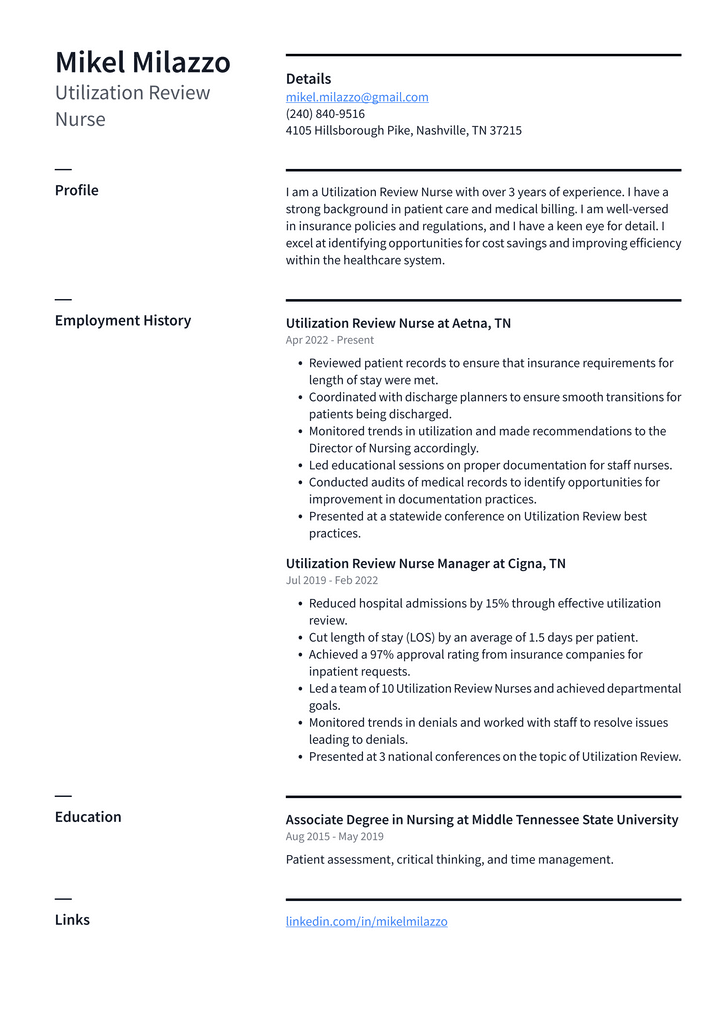
Download This Utilization Review Nurse Resume as PDF
Patient Advocate Resume Example
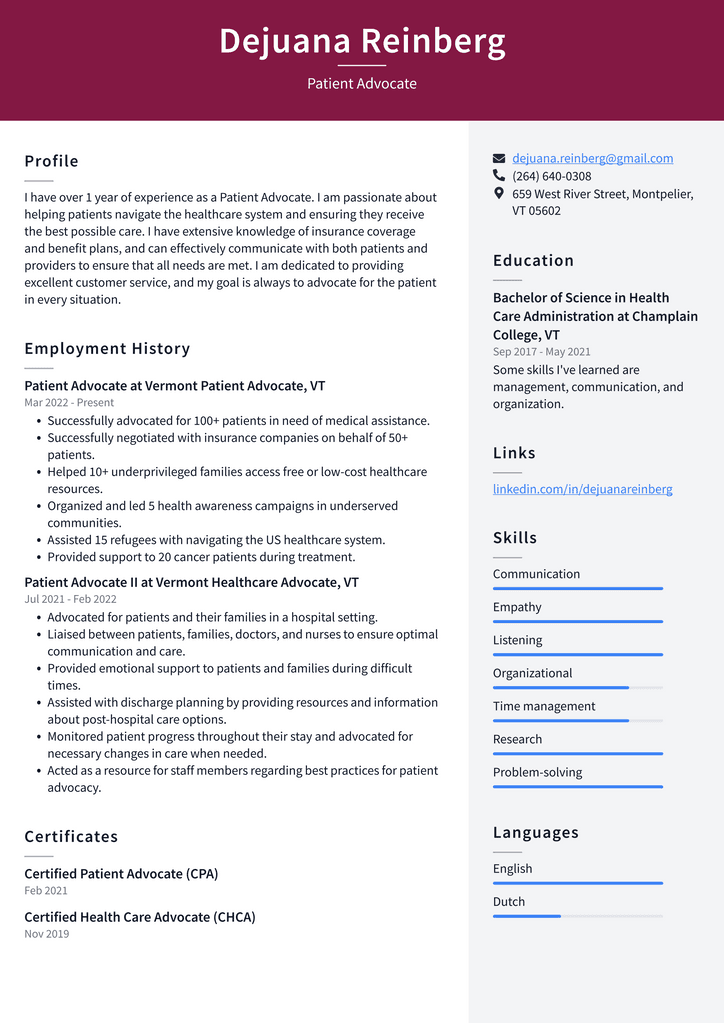
Download This Patient Advocate Resume as PDF
Care Manager Resume Example
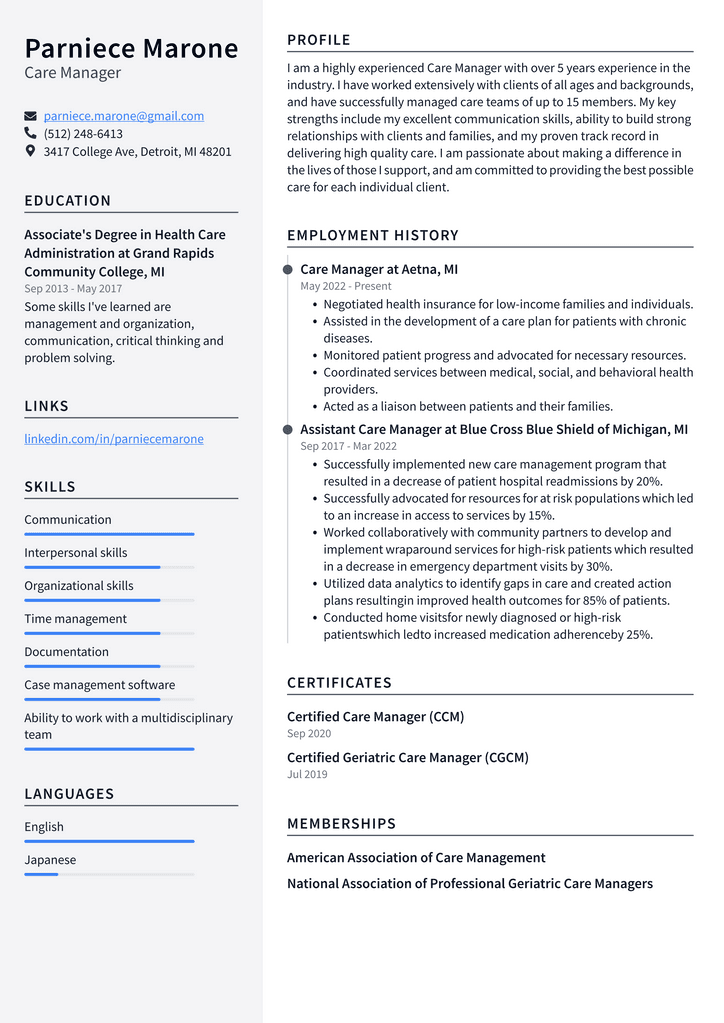
Download This Care Manager Resume as PDF
Discharge Planner Resume Example
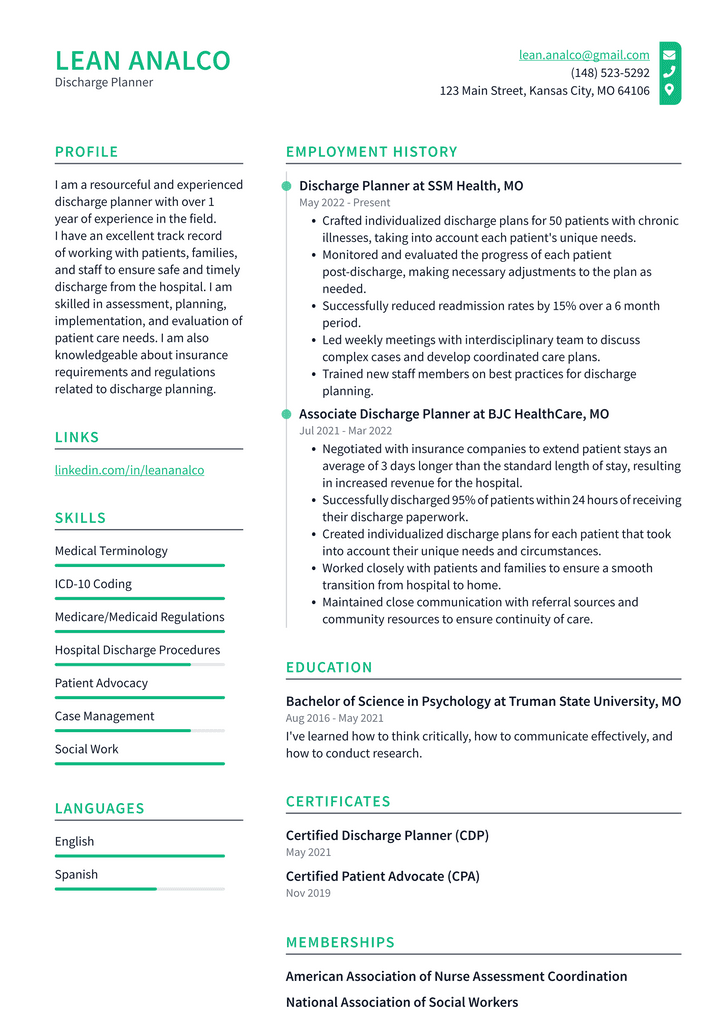
Download This Discharge Planner Resume as PDF
Social Worker Resume Example
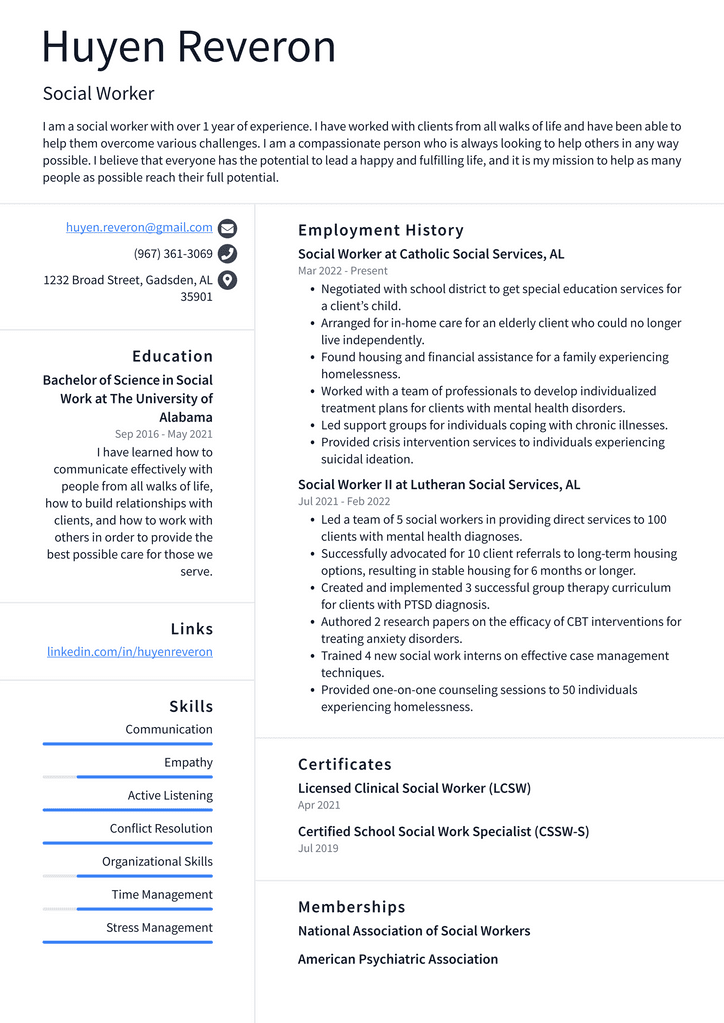
Download This Social Worker Resume as PDF
Care Coordinator Resume Example
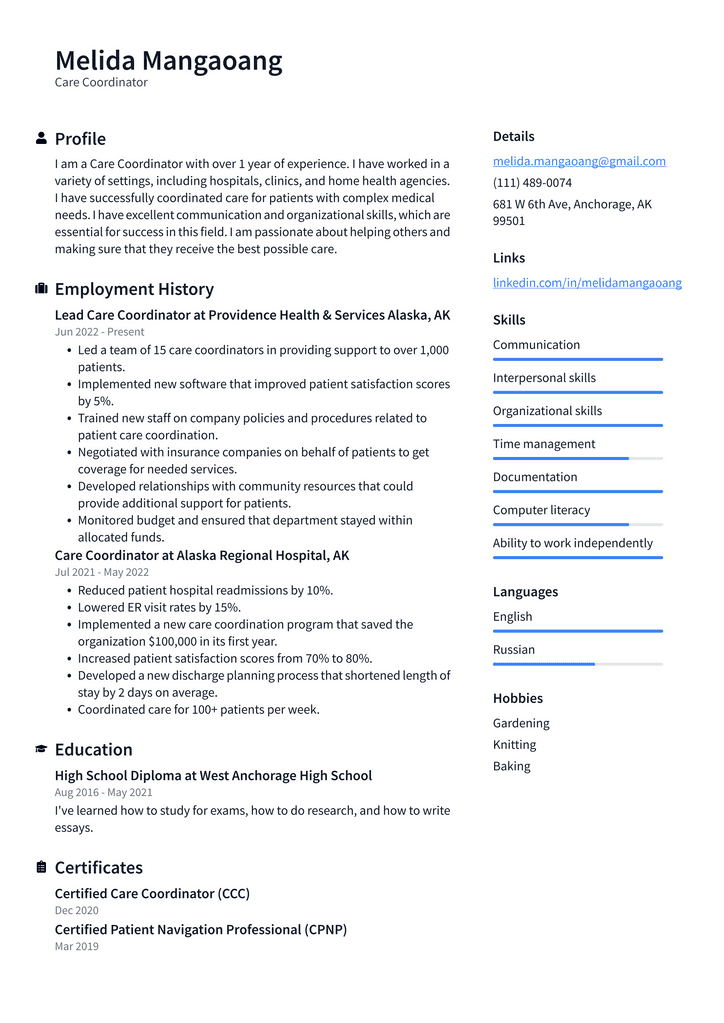
Download This Care Coordinator Resume as PDF
What Does a Case Manager Do?
A case manager, also called a care manager, is employed by a hospital, insurance company, or healthcare provider to help coordinate an individual’s healthcare. This might involve ensuring the patient’s treatment plan is progressing as expected, connecting them with resources, and more. A case manager will often oversee a group of patients, keeping track of their progress and ensuring they’re on their way to meeting their health goals. They’ll meet with patients regularly to get feedback and discuss any issues they might be experiencing. A case manager might also be asked to investigate and resolve complaints about the healthcare system. Working as a case manager is vital because it allows you to help others by facilitating the process of getting the care they need. In addition, you’ll be able to support individuals and families at a time in their lives when they may be under a great deal of stress.
The Importance of Having a Great Resume
The first thing a hiring manager sees when they look over your application is your resume, making it one of the most critical aspects of your job search. A great resume will highlight the skills, knowledge, and abilities that make you a great candidate for the position. A case manager’s resume should be well-organized, clear, and concise, focusing on your skills, abilities, and transferable experience. You’ll also want to include any education, training, or certifications you have that might be relevant to the role you’re pursuing. A case manager’s resume needs to be as professional as possible, as hiring managers will likely be reviewing hundreds of applications for a single job posting. You can’t afford to have a sloppy resume, as you may get passed over simply because your resume doesn’t effectively represent your skills and abilities.
Tips for Writing Your Case Manager Resume
Now that we’ve gone over what a case manager does and why your resume is so important, let’s look at how to write a case manager resume. A case manager resume should include the following information: – Job Objective: What would you like to do? – Summary of Qualifications: What makes you qualified for the job? – Education: This includes your degree, any relevant minors, and any certifications or training you have. – Work Experience: This should include your previous jobs, what you did, and what you learned from each. – Other Relevant Details: Include any volunteer experience, extracurricular activities, or other details that would help your resume stand out from the crowd.
Conclusion
A case manager is an integral part of the healthcare system. They are responsible for helping patients meet their treatment goals by coordinating their care and connecting them with resources. A case manager’s resume should be professional, clear, and concise to ensure hiring managers notice your application. Ensure to include the skills, abilities, and transferable experience you have that would make you a great candidate for the job. Make sure to organize your resume well and include any education, training, or certifications that are relevant to the position. From there, all that’s left is to wait and see if your application is selected!